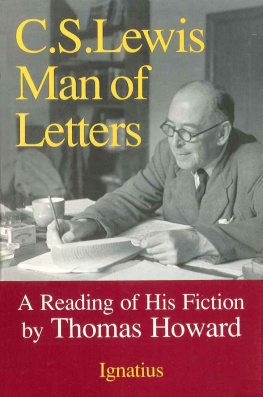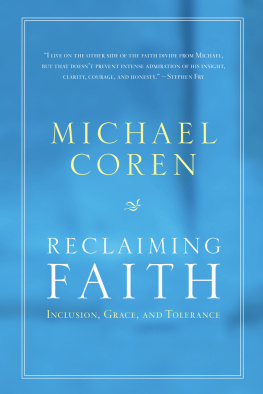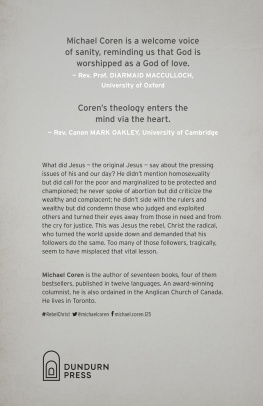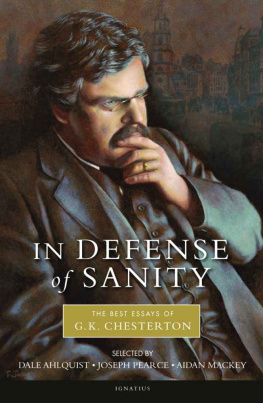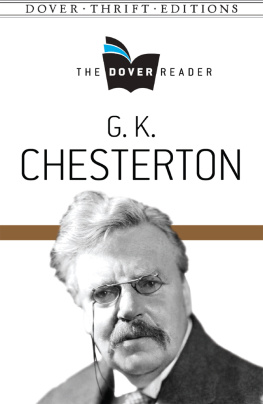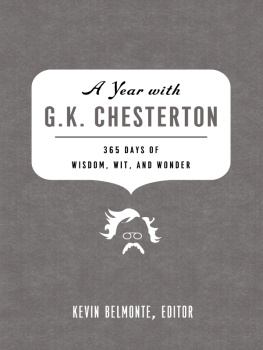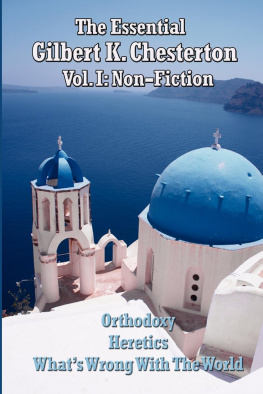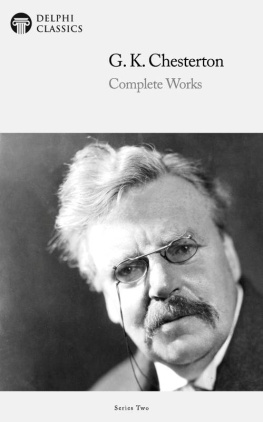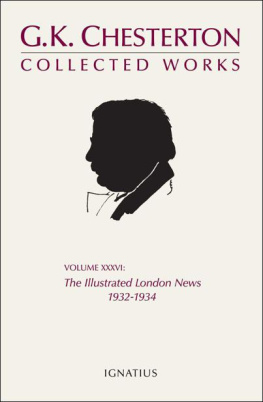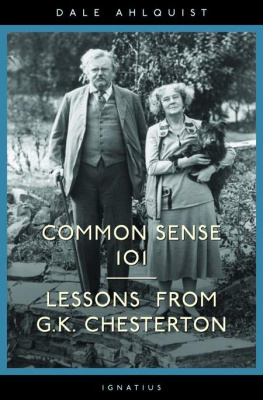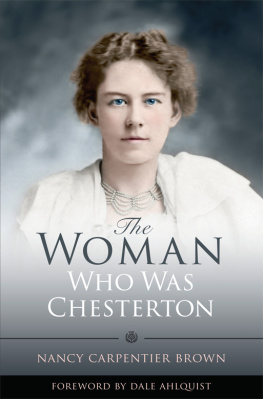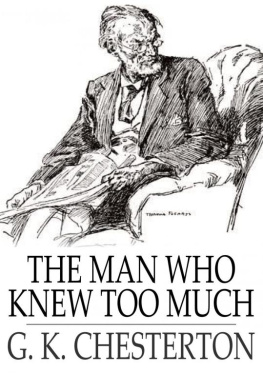Gilbert: The Man Who was G. K. Chesterton
Michael Coren
Michael Coren, 1990
Michael Coren has asserted his rights under the Copyright, Design and Patents Act, 1988, to be identified as the author of this work.
First published in 1989 by Jonathan Cape, Ltd.
This edition published in 2016 by Endeavour Press Ltd.
To my father, Philip Coren, still my best of men
Table of Contents
Preface
I first became interested in and intrigued by G.K. Chesterton when I was a schoolboy and read the Father Brown stories. They were bright, bold and brilliant. Later, after having read The Everlasting Man and The Man Who Was Thursday , I searched for a study of Chestertons life and discovered that few existed and those that did labeled him an anti-Semite and worse. I could not reconcile such sensitive prose with such barbaric views. My studies of Gilbert then began.
Years later, in the summer of 1986, on a quintessentially English afternoon, I walked across an East Anglian field with a dear old friend. As we often did on our walks, we discussed Chesterton, literature, my career, still in its inchoate stages, the state of the world. I had just finished writing my second book and my friend asked what I would write next. I answered that I did not know; that Chesterton was a love of mine, but I felt a bit too young to consider such a project. He looked down an aquiline nose at me, registered a hybrid of disgust and disappointment and told me to begin at once. I did.
The absence of notes in the book is a deliberate policy. In my jejune way I have attempted to follow in the tradition of my subject, and paint a picture as well as tell a story of a great life. For Chesterton the use of copious notes in a biography detracted from the central theme and purpose. On this project, though not for biographies in general, I concur with him. Hence sources are either quoted in the main body of the text, or referred to in the bibliography.
The American edition of Gilbert differs from the British edition in several ways. The publisher requested that I include another chapter dealing with the relationship between Gilbert and Bernard Shaw. I have also extended the final chapter, concentrating on Gilberts time in the United States, and dwelling on the final months in his life. There were also, inevitably, some blemishes in the British edition which have been erased for the more discerning American reader.
I would like to express my appreciation and thanks to the following people: Aidan Mackey, Chestertonian of Chestertonians, who provided time, sources, beer and advice; I shall forever be in his debt. I should like to record my appreciation of the trust the late Miss Dorothy Collins showed me in giving me access to photographs and papers. The following people have also played a vital role in bringing this book to be: I give thanks to Dr. Tessa Beeching, Colin Welland, Monsignor F. Miles, Rev. Henry Reed, Rt. Hon. Kenneth Baker, George Smith, The Weiner Library, Col. John Hayes, Gregory MacDonald, Paul Goodman, Paul Pinto, Professor David Regan, Sir Stephen Hayhurst, George Marlin, Father Bocard Sewell, Capt. Moshe Ben-Avi, Iain Benson, Susan Walker, Judith Lee, J.B. Priestley, my editor at Paragon House, Donald Fehr, my parents Philip and Shiela Coren, my wife Bernadette and son Daniel Avi Gilbert.
Michael Coren
Toronto, Canada
August 1989
I -The God with the Golden Key
When the inevitable came, it came with a bitter suddenness. Gilbert had completed his Autobiography early in 1936, and his health was even then under severe strain. Friends were relieved that the book of memoirs was finally at an end; they did not expect the man to see out much more than another year. Dorothy Collins, ever aware of the problems which Gilbert was facing, took him and Frances to France, to visit the shrines of Lourdes and Lisieux. It was not a simple sight-seeing exercise. From Lisieux he wrote a letter, his handwriting by this time almost impossible to read, and said he was presently under the shadow of the shrine. He sang a good deal on the trip, his repertoire including selections from Gilbert and Sullivan and lines of lyrical poetry. The two ladies listened sympathetically. Lourdes appealed to his Catholicism and his love of continental Europe. He did not find it too commercial and relished its comfort and curious ordinariness.
On returning home Gilbert found that his study was ready and he and Dorothy Collins moved in. By this time however Gilberts ill health was too serious to ignore; his pain and suffering was for the first time controlling his actions and dictating his way of life. On March 18th he delivered his final radio talk, entitled We Will End With A Bang. In a parody of T.S. Eliots The Hollow Men he stated, And they may end with a whimper/But we will end with a bang. But work was becoming virtually impossible. He would walk to his desk, sit down, and after increasingly shorter periods of time would fall asleep. The doctors knew of Gilberts bronchitis and fever attacks; they also knew that the fundamental problem was the great mans heart. Heart trouble had been diagnosed years ago, and now with age and weight and excess compounding the difficulties there was little that could be done. Frances wrote to Father OConnor
12th June, 1936
My Dear Padre,
In case you hear the news from elsewhere I write myself to tell you that G. is very seriously ill. The main trouble is heart and kidney and an amount of fluid in the body that sets up a dropsical condition. I have had a specialist to see him, who says that though he is desperately ill there is a fighting chance. I think possibly he is a little better today. He has had Extreme Unction this morning and received Holy Communion.
Will you, as I know you will, pray for him and get others to do so and say some Masses for him.
Frances was adamant that the press should not know of or exploit Gilberts illness. She personally asked editors not to publicise the fact, anxious that her husband should have peace and quiet, also quite terrified that the probability of death should become even more real and immediate through its publicity. She was a brave, terrified and loving woman. He did fight back to something like full consciousness at one point, proclaiming in his storm before the lull that, The issue is now quite clear. It is between light and darkness and every one must choose his side. Frances had experienced the 1916 recovery, thought of it as a miracle and did not dare to hope this would be yet another. She kept vigil by his bed, and prayed.
On June 12th Monsignor Smith, the parish priest, arrived at Top Meadow to anoint Gilbert with chrism and to give communion. Gilbert was partly conscious for the rite, as he had been for brief periods over the previous two days. Father Vincent McNabb followed soon afterwards. He sang the Salve Regina over Gilbert, the hymn which is sung over dying Dominican priests; how appropriate for the biographer of St Thomas Aquinas, the jewel of the Dominican order. He saw Gilberts pen lying by the side of the bed, blessed and kissed it and then returned to London.
On the night of 13th June he seemed a little better, almost calm and clear as he struggled to cope with his breathing. In one of these fleeting moments of alertness he managed to see Frances, and said simply Hello, my darling. Turning to Dorothy Collins, who was also in the room, he said Hello, my dear. He was to speak no more, and slipped under a blanket of painful and unnatural sleep. His condition grew worse through the night, and around 10.15 on the morning of 14th June 1936, Gilberts soul passed gently from this earth.
Because of Francess efforts to keep the newspapers at a safe distance the news was all the more shocking. She wrote to Father OConnor: Our beloved Gilbert passed away this morning at 10.15. He was unconscious for some time before but had received the Last Sacraments and Extreme Unction whilst he was still in possession of his understanding Tributes were not long in coming. E.C. Bentley spoke of the genius of his friend on the radio, Cardinal Pacelli (later to become Pope Pius XII) cabled Holy Father deeply grieved death Mr. Gilbert Keith Chesterton devoted son Holy Church gifted Defender of the Catholic Faith. His Holiness offers paternal sympathy people of England assures prayers dear departed, bestows Apostolic Benediction. George Bernard Shaw wrote to Frances immediately on hearing the news, asking if she was financially secure and lamenting that he, eighteen years the senior of Gilbert, should out-live his friend and foe. Maurice Baring, scribbling painfully in pencil, worked through his shaking palsy to write: Too paralysed with neuritis and agitance to hold pen or pencil. Saw incredible news in Times. Then your letter came. All my prayers and thought are with you. Im not allowed to travel except once a week to see doctor, but Ill have a mass said here. Written messages of respect and sorrow came from J.M. Barrie, Ronald Knox, Eric Gill and a host of admirers both known and unknown to Gilbert. Writing to a companion, Hugh Kingsmill stated: My friend Hesketh Pearson was staying with me when I read of Chestertons death. I told him of it through the bathroom door, and he sent up a hollow groan which must have echoed that morning all over England. Gilbert had stridden both literary and social worlds, and both registered their shock and regret. To some the loss was agonising and confusing; a friend and ally in the most important of all conflicts. To others a gracious opponent and witty antagonist had left them, leaving a vacuum impossible to fill. To many the response on hearing of his death was to say What will we ever do without him?
Next page

